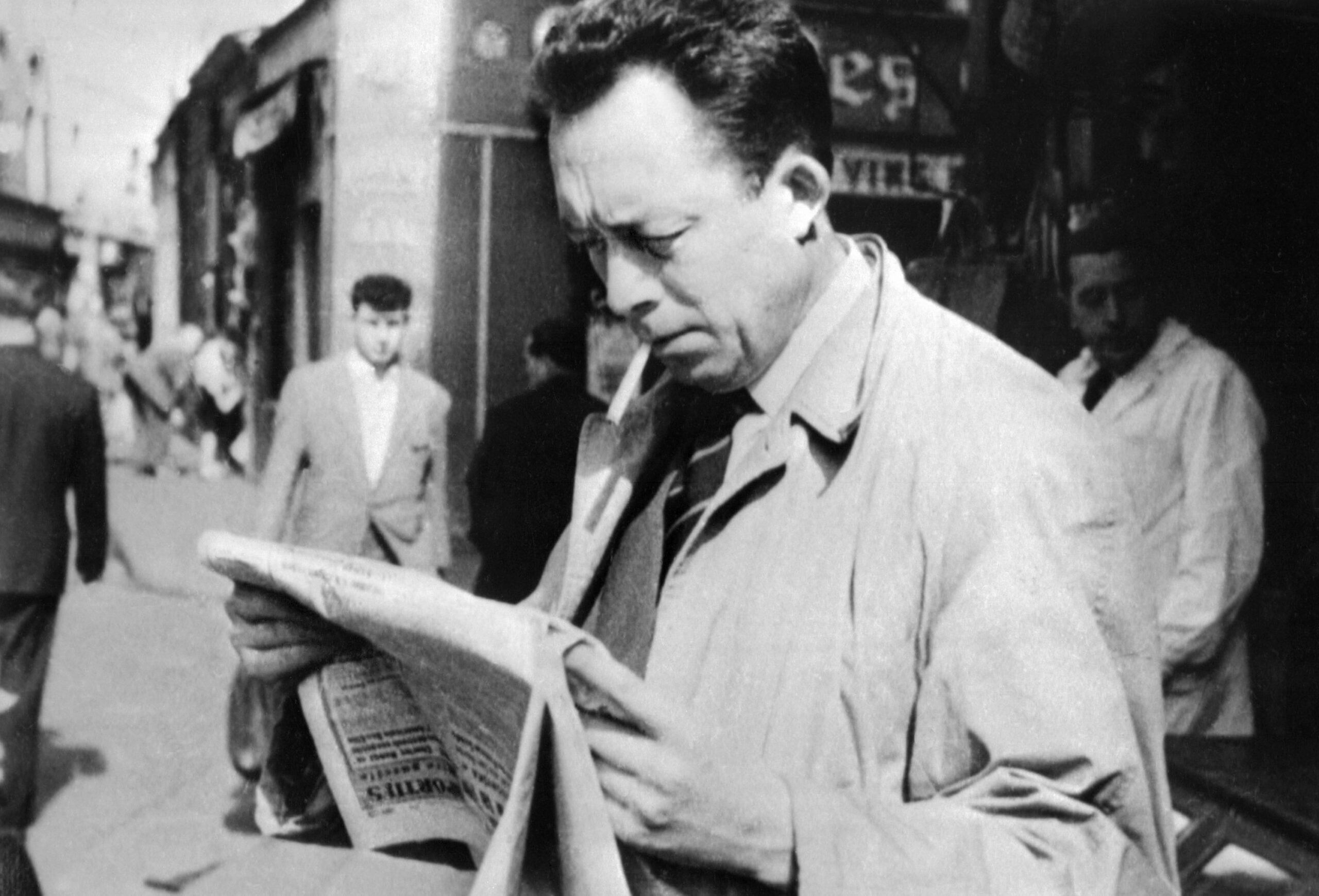The liberation of Paris: France: August 22-25, 1944
The truth is the revelation of what makes people confident, certain and strong in their actions and in their knowledge, only this kind of “truth” must be spoken. This is what Martin Heidegger wrote in Hitler’s statement in 1993. Later Heidegger would be widely criticized for these words and for his support of the Nazis.
 75 years ago Paris was liberated from the Nazi occupation. Almost 4 years of the occupation (June 14, 1940 – August 25, 1944) brought a series of disappointment, humiliation – but also liberation – to Paris and the Parisians. On August 25, 1944, the city and its citizens were liberated.
75 years ago Paris was liberated from the Nazi occupation. Almost 4 years of the occupation (June 14, 1940 – August 25, 1944) brought a series of disappointment, humiliation – but also liberation – to Paris and the Parisians. On August 25, 1944, the city and its citizens were liberated.
During the years of the French resistance, there were a few underground publications, of which the newspaper “Combat” was managed by Jean-Paul Sartre, Albert Camus, and Simone de Beauvoir during and after the war. In 1944 – 1947 Camus became the editor of the latter, where he also published copyright materials. Camus urged his reader to “suspect those, who speak loudly for the sake of democratic ideals and justifications, but whose goal was to inspire fear in opponents and to silence the disagreements.”
In this same period, Camus wrote the “Letters to a German friend.” The first of these letters was published in 1943, the second in 1944. The other two remained unpublished until the liberation.
These Letters of Camus seemed to be the reverse of the 1933 Heidegger’s formula of truth. Camus asks: “What is the truth?” “What is justice?” “What is spirit?” “What is man?” “What is a homeland?” And the launch of all these questions was the statement of the German friend – “You don’t love your homeland” – in response to which Camus raises these questions and gives their answers. Perhaps, these questions and answers are a very interesting, valuable mono-dialogue initiated by the intellectual, in this case, Albert Camus.
Recently, Magnum published 75-year-old photos of the liberation of Paris, this historic event, of Robert Capa, Henri Cartier-Bresson, and George Roger. From the course of these photos, we have selected excerpts from the above-mentioned letters of Camus, as a title, as a shorthand, and as an intellectual’s effort to reveal the truth.
First letter
“No victory brings retribution, while all human distortion and mutilation is irreversible.”
You said to me: “The glory and greatness of my country are beyond price. Anything that contributes to its prosperity is good. In a world where everything is meaningless, those who, like us young Germans, have been lucky enough to find it in the destiny of their nation, must sacrifice everything for it.” I used to love you, but at that point, we diverged. “No”, I told you, “I cannot accept that everything is necessary to serve the purpose pursued.. There are means that are not forgiven. I would like to be able to love my country, fully loving justice. I don’t wish it an opportune or inopportune glory, which is mixed with blood and falsehood. I would like to ensure its life by bringing justice to life.” You answered: “If it is so, you do not love your country.”
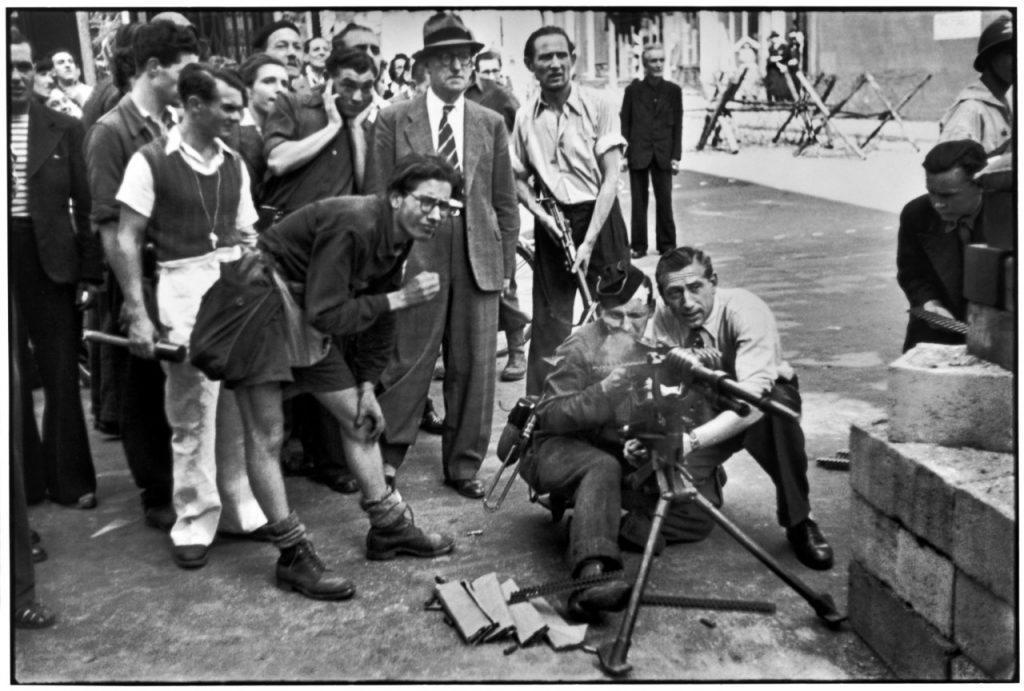
Five years have passed since the day we broke up, and I can say that during those long years (but so short and quick as lightning for you), there was not a day that I didn’t think of what you had said. “You do not love your country.” When I think about it today, something is tightening in my throat. No, I do not love, if not to love means to bring out the unjust in all that we love, if not to love means to demand that our beloved one be identical with our most beautiful imagination of him/her.
I have never believed in the power of self-serving truth. But it means a lot to know that in the case of equal forces, the truth leads to victory over the lie. We have reached that difficult balance. And today we are struggling based on that nuance. I even dare to say that we are struggling only for the nuances – the nuances that are as important as the human.
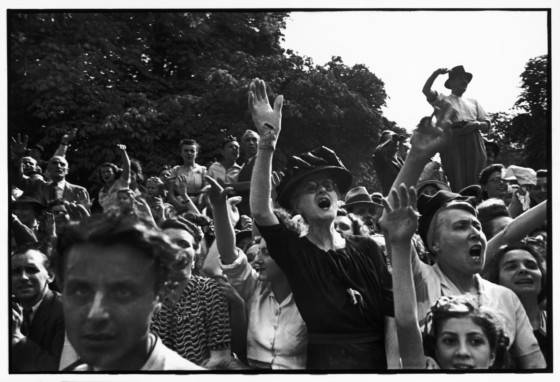
This is what he wants to tell you, not outside of this fight, but inside it. This is what he wants to answer the words, “You do not love your country,” which still haunts me. But I want to be honest with you. I think France has lost its power and dominance for a long time and for a long time it will need desperate patience, vigilant rebellion to regain its share of prestige, the prestige that any culture needs. But I believe he lost it all for impeccable reasons. This is why hope does not leave me. This is the essence of my letter. The person you sympathized with five years ago for being so reticent about his country, is the same person who wants to tell you, you and all people of our era living in Europe and all over the world: “I belong to a marvellous, enduring nation, which in its long line of delusions and weaknesses hasn’t lost the idea of its glory and greatness, which its people endlessly, incessantly, and the chosen class sometimes strives to formulate better and better. I belong to a nation, which four years ago began to reconsider its entire history, and now calmly and confidently in the ruins, it is going to build it differently and try its luck in a game it participates in without victories. This country deserves to be loved with a difficult and demanding love like mine. I think it is more worth fighting for it now because it deserves the highest love. And I insist, your nation, on the other hand, received from its sons only a love worthy of him, which was blind. You won’t be justified by every love. That’s what led us to loss. And you, who have already lost in their greatest victories, what will you be in the upcoming defeat? ”
July 1943
Second Letter
We had turned our country into an idea that was putting it in the place it deserved, next to our pursuit of other greatness: friendship, human, happiness, justice. And that prompted us to be exacting with it.
One thinks especially at night. It has been three years that you have spread night over our cities and in our hearts. It has been three years that we have been pursuing in the dark the idea that is rising against you as a weapon today. Now I can talk to you about rationality.
… I have already responded to the words “you do not love your country” which you sometimes threw in my face, and the memory of which has not yet left me. Today I just want to respond to your impatient, carefree smile, which you showed when hearing the word rationality. “With all its rationality,” you used to tell me, “France denies itself. Your intellectuals prefer, depending on the circumstances, hopelessness or the pursuit of unthinkable truth over their country. While we put Germany ahead of the truth, and above despair.” Apparently, that was right. But I have already said, that if sometimes we seem to have given preference to justice over the country, the reason is that we wanted to love our country only in justice, as we would like to love it in the truth and hope. This is how we differ from you, we were demanding of ourselves. You were pleased to serve the strength of your nation, while we dreamed of telling the truth to our nation. You were satisfied to serve real politics, while we vaguely kept in our heavy delusions the idea of a policy of honour, which we have rediscovered today. I say “we”, not our leaders. After all, a leader does not mean anything yet.
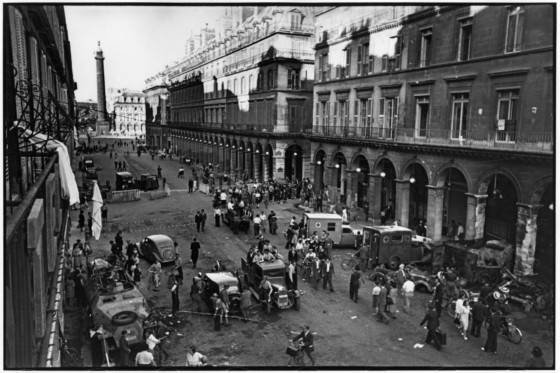
“What is the truth?” you used to say. Of course, there is no answer to that, but at least we know what a lie is. That’s exactly what you taught us. “And what is spirit?” We are familiar with its opposite, that is murder. “And what is a human?” But I will interrupt you here because we already know it. It is the force that ultimately counterbalances the dictators and the gods. It is the power of the patency. We must preserve that human patency, and our current conviction stems from the fact that the destinies of humans and our country are interrelated. If everything was meaningless, you would be right. But there is something that still makes sense!
I cannot repeat too much, but that is how we differ from you. We had turned our country into an idea that was putting it in the place it deserved, next to our pursuit of other greatness: friendship, human, happiness, justice. And that prompted us to be exacting with it. But in the long run, we came out to be right. We did not give slaves to our homeland, we did not humiliate anything for its sake. We waited patiently to see clearly and in misery and pain, we rejoiced, that at the same time we could fight for the sake of what we love. On the contrary, you are fighting against the part of the person that does not belong to the homeland. Your sacrifices are meaningless because your hierarchy is not perfect, your values are out of their places. It is not only in the heart that you have betrayed. And now the rationality is taking its revenge. ..
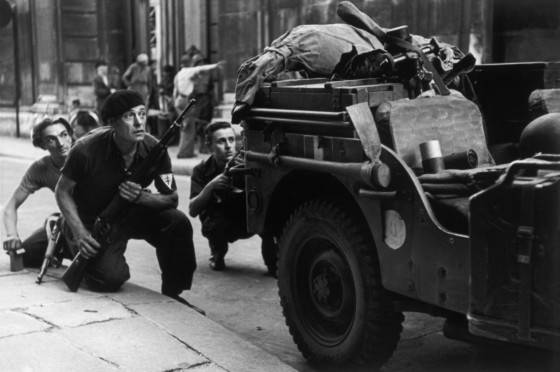
.. I have already told you that conviction does not fill the heart with joy. We know what we lost during that long turn. We know the price of that bitter joy of fighting while in peace with ourselves. Because we have a strong sense of irreversibility; because our fight has as much bitterness in it as confidence in victory. War does not satisfy us. Our proofs were not ready yet! Our people chose the civil war, the resolute and joint struggle, the sacrifice without explanations. This is a war it declared against itself, and not accepted by the silly and weak governments. A war in which it rediscovered itself, and fights for the faith it has formed of itself. But the luxury, it afforded, cost too expensive. There too, these people have more merit than yours. Because its best children fell in that struggle of life and death – this is my most evil thought. There is an advantage of irony in the irony of war. Death spreads everywhere and based on fortune. Courage, in the war we waged, revealed itself spontaneously, and you always shot our fairest soul. Because your simplicity doesn’t lack prediction. You never know what you have to choose, but you know what you have to destroy. And we, considering ourselves guardians of the spirit, know, however, that the spirit can die when the energy that destroys it is strong enough. But we believe in another energy. You think you destroy the face of our truth by covering with bullets those faces that have already said goodbye to this muted world. But you do not take into account the resolution that forces France to struggle against time. This disheartening belief supports us in difficult times: our friends will be more patient than executioners, they will be more than bullets. You see, the French are capable of wrath.
December 1943
Third Letter
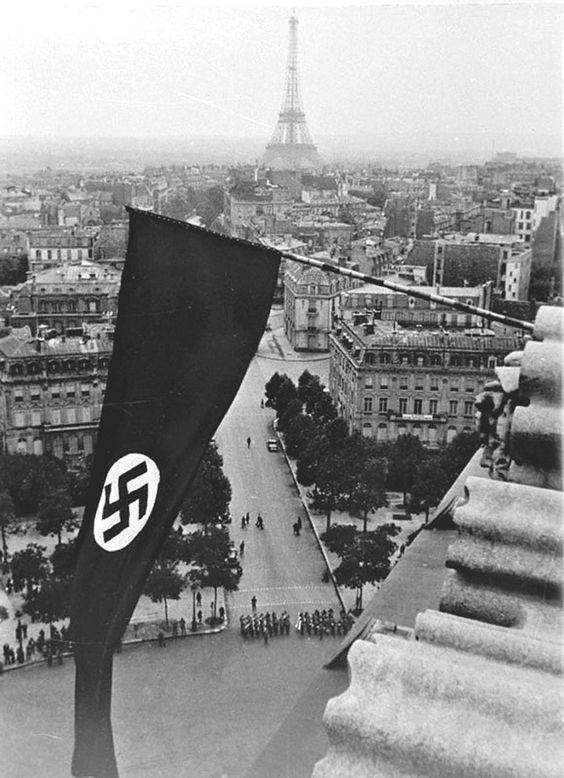
… You suffer the most when you see how they mock and distort what you love. The idea of Europe that you have taken away from our best people, giving it the offensive meaning you have chosen, and in order to cherish the idea of that new, powerful Europe in our souls we must show great power and capacity of conscious love. There is an adjective that we do not use anymore, and you have called European the army of slaves, in order to diligently preserve for us the word that has never lost its pure meaning, which I will now represent to you.
You talk about Europe, but with the difference that Europe is a property for you, whereas we feel like being subject to it. You started talking about Europe like that from the day you lost Africa. That kind of love is extraordinary. This land, where many centuries have left their mark, is only a forced retreat for you, while for us it is a sacred hope…
You say Europe, but in your mind, it is a military territory, a wheat barn, a household industry, a controlled mind… where Germany started a game the whole sum of which is its own destiny. But that Europe is the origin of spirit for us, where the most amazing mystery of the human spirit has been created for twenty centuries. It is the unique arena where the struggle of the human of the West against the world, against the gods, against himself reaches its most shocking moment today. You see, we do not have a common criterion…
…Our struggle is convinced of victory, because it has the reviliance of springs…
Finally, I know that your defeat will not settle everything. Europe must be rebuilt. It must always be built. But at least Europe will remain the same, that is, what I have already presented to you. Nothing will be lost. And now imagine us, confident in our arguments, in love with our homeland, infatuated with the whole of Europe and on the right balance between sacrifice, happiness, spirit and sword.
I say this again because it is necessary to say, because that is the truth, and that truth will show you the way that my country and I have passed since our friendship. From now on, there is an excellence in us that will kill you.
April 1944
Fourth Letter
“A man is mortal. But it is possible that we accept death by resisting, and if we have immortality, let us not make it a judgment. ”
Oberman, letter 90
Here comes the hour of your defeat. I am writing to you from a world-famous city that is preparing the day of future freedom against you. It knows it’s not easy and it first needs to get through a darker night than the night your arrival brought four years ago. I am writing to you from a city that has lost everything, is deprived of light and fire, is starving, but has never kneeled down. Very soon, a new breath will blow there, you have no idea about it yet. If we had had luck, we would have faced each other. Then we would be able to fight in a practical way. Me, having the right idea of your motives, you, having a very good understanding of our stimuli.
These July nights are both light and heavy. They are light under the Seine trees, heavy in the hearts of those who are waiting for the only desired dawn from now on. ..
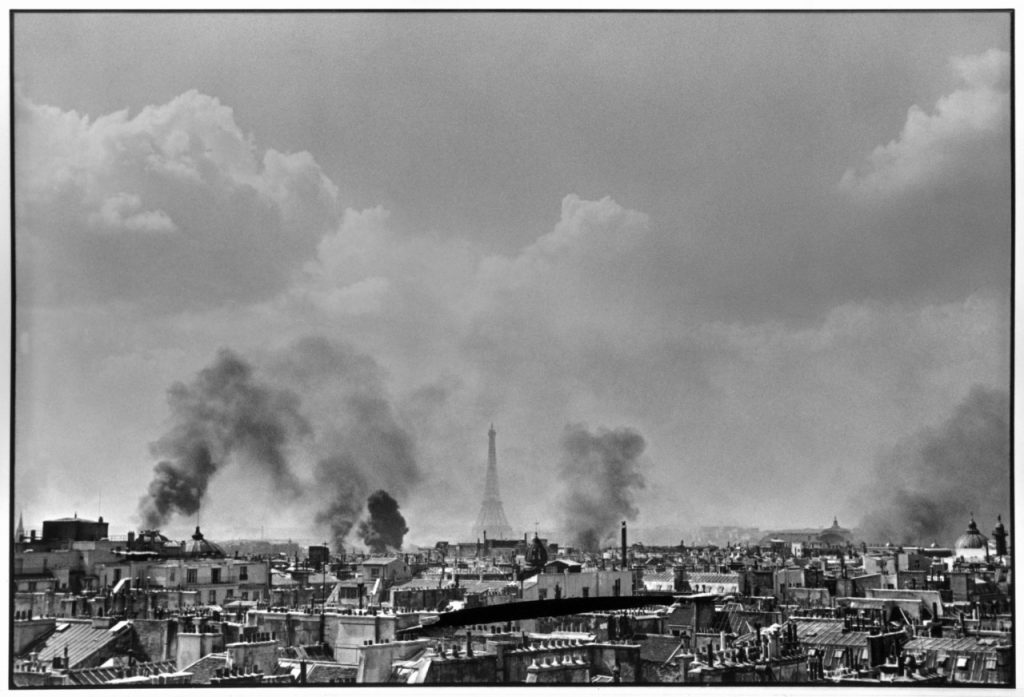
.. You never believed that this world has meaning, and you concluded that everything has the same price, that good and evil can be defined as desired. You assumed that in case of the absence of all human or divine morality, the only values are those that govern the animal world, i.e. violence and deception. And from this, you have concluded that a human is nothing, and his soul may be killed, that in this most meaningless story the individual’s problem is the use of his strength and power, and his morality is the reality of achievements. ..
… One should establish justice in order to resist eternal injustice, create happiness as a protest against the world of misfortunes. …
You turned your despair into drunkenness, got rid of it making it a principle, easily undertook to destroy the human’s creations and to fight against him to put an end to his daily misery. And I, rejecting that despair and that tormented world, only wanted people to regain their solidarity and to fight against their wrongful destiny.
You see, we have learned different moral lessons from the same principle. You just gave up common sense on the way, and considered it more convenient (you would say indifferent) for someone else to think instead of you and millions of Germans. Being tired of fighting against heaven, you have been rejuvenated in this exhausting venture where your mission is to mutilate souls and destroy the world. In a word, you chose injustice and identified yourselves with the gods. Your logic remained imaginary.
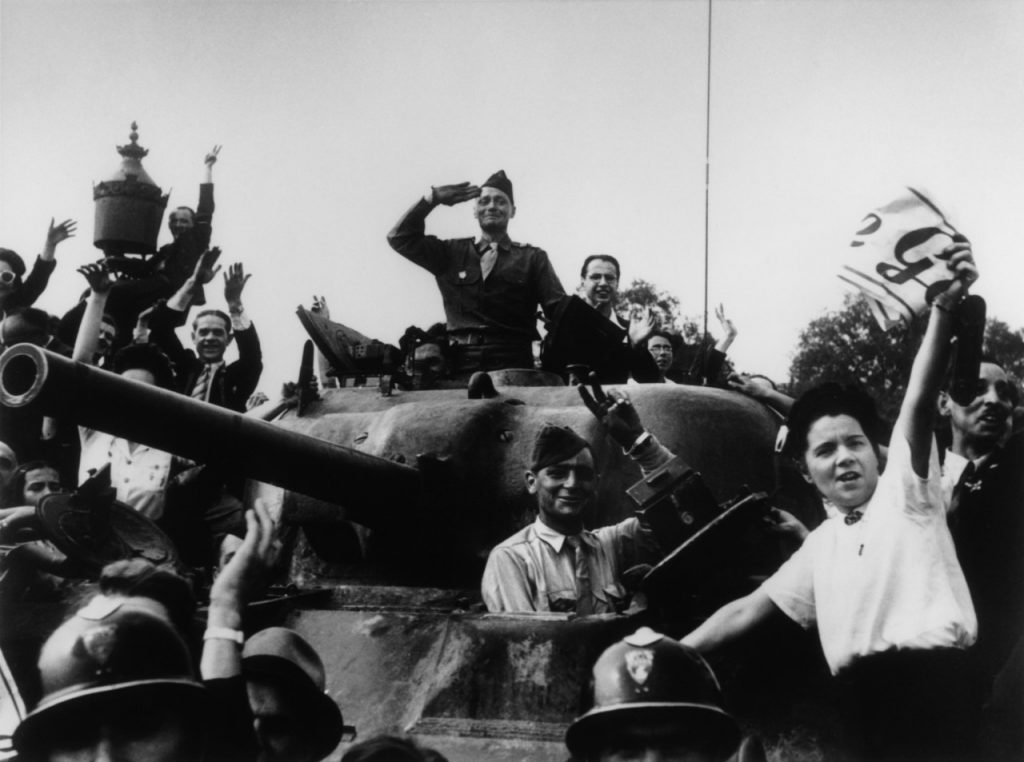
“And what does it mean to save a person?” “It means not to mangle him, to give him all the possibilities of justice, a justice that only he can comprehend.
I chose, on the contrary, justice to remain faithful to the world. But I still think that this world has no highest meaning. Though. I know that something in it has a meaning, and that is the human being because it is the only creature that needs to acquire that meaning. This world has at least the truth of humans, our task is to give him the necessary arguments to fight against fate. And he has no other arguments than being a human being: we need to save the human if we want to save our perception of life. Your smile and contempt will tell me. “What does it mean to save a human?” But I shout with all my being, it means not to embarrass him, to give him all the possibilities of justice, justice that only he can comprehend.
This is why we rose against you. ..
July 1944
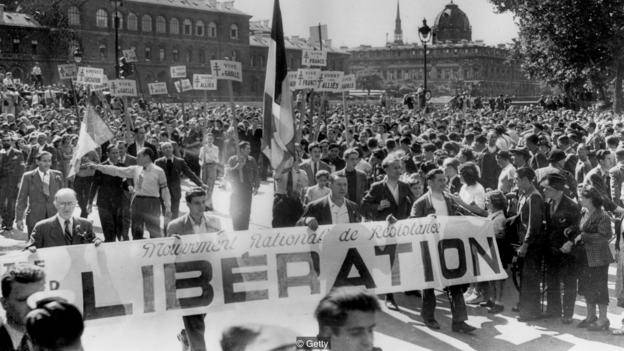
—
“Letters to a German Friend” translated from French into Armenian by Arus Boyajyan, published in 1999 in the Rubicon fiction-cultural quarterly magazine.
Bibliography
Author: Anna Khachyan © All rights reserved.
Translator: Sona Simonyan









